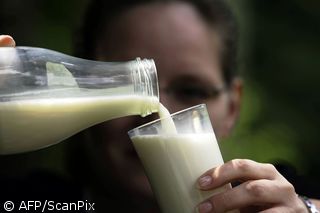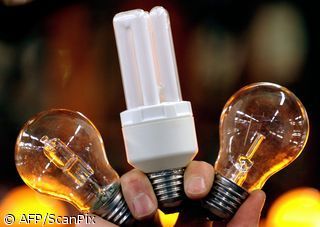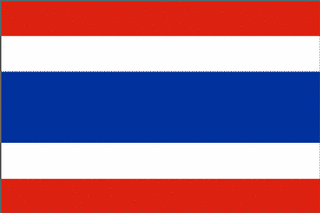Russia and its neighbors may boost crude oil shipments through an Israeli pipeline, helping them compete against Persian Gulf nations for sales in Asia
Published:
3 November 2003 y., Monday
The 254-kilometer Eilat-Ashkelon pipeline, which has flowed from the Red Sea to the Mediterranean for more than 30 years, will reverse direction for a second time in November. A tanker is set to leave the Red Sea port of Eilat, bound for Asia, with oil sent from Ashkelon on the Mediterranean.
Russia wants to sell more oil in Asia, where demand is growing faster than in Europe, as China and Japan seek to reduce their dependence on Middle East exports. The pipeline gives oil companies an alternative to the longer route around Africa and lets them avoid restrictions in Egypt's Suez Canal.
How much crude will be exported across Israel will depend on the so-called arbitrage window, when Russian oil prices are low enough to attract Asian buyers. The pipeline may make Russian crude oil, which costs about four times as much to produce as Middle Eastern grades, more competitive by reducing transport distances and costs.
Very large crude carriers, or VLCCs, which can carry about 2 million barrels of oil, take 10 days to travel from the Red Sea to Asia compared with 30 to 35 days from the Mediterranean.
A tanker is scheduled to unload about 2 million barrels of Russian Urals and Kazakh Tengiz crude at Ashkelon in the second half of November, shipbrokers said.
Šaltinis:
Bloomberg
Copying, publishing, announcing any information from the News.lt portal without written permission of News.lt editorial office is prohibited.
The most popular articles
 During the meeting, which took place on 3 September 2009 the Bank of Lithuania approved the transaction, according to which AB Bank SNORAS will acquire 100 percent of the shares of AB “Finasta įmonių finansai” owning AB bank “Finasta”.
more »
During the meeting, which took place on 3 September 2009 the Bank of Lithuania approved the transaction, according to which AB Bank SNORAS will acquire 100 percent of the shares of AB “Finasta įmonių finansai” owning AB bank “Finasta”.
more »
 The European Commission tabled yesterday its proposal on fishing possibilities for fish stocks in the Baltic Sea for 2010.
more »
The European Commission tabled yesterday its proposal on fishing possibilities for fish stocks in the Baltic Sea for 2010.
more »
 Members of the Civil Liberties Committee voiced concern on Thursday over the interim agreement under negotiation between the EU and the United States on data transfers via the SWIFT network.
more »
Members of the Civil Liberties Committee voiced concern on Thursday over the interim agreement under negotiation between the EU and the United States on data transfers via the SWIFT network.
more »
 Consumers in Cyprus, the Czech Republic, Hungary, Poland, Romania and Slovenia now have access to consumer magazines and websites, which provide independent, comparative testing of consumer products, following a three-year EU project co-financed by the European Commission.
more »
Consumers in Cyprus, the Czech Republic, Hungary, Poland, Romania and Slovenia now have access to consumer magazines and websites, which provide independent, comparative testing of consumer products, following a three-year EU project co-financed by the European Commission.
more »
 Funds management company “SNORAS Asset Management” will establish the first alternative investment fund in Lithuania - “SAM Renewable Energy Fund”.
more »
Funds management company “SNORAS Asset Management” will establish the first alternative investment fund in Lithuania - “SAM Renewable Energy Fund”.
more »
 The re-launched Lisbon Partnership for growth and jobs has put innovation and entrepreneurship at the centre and called for decisive and more coherent action by the Community and the Member States in view of mastering the shift towards knowledge based low carbon economy.
more »
The re-launched Lisbon Partnership for growth and jobs has put innovation and entrepreneurship at the centre and called for decisive and more coherent action by the Community and the Member States in view of mastering the shift towards knowledge based low carbon economy.
more »
 Helping dairy farmers now, as well as restructuring the dairy sector in the long run, is the way out of the current milk market crisis, Agriculture Committee MEPs told Agriculture Commissioner Mariann Fischer Boel in a debate on Tuesday.
more »
Helping dairy farmers now, as well as restructuring the dairy sector in the long run, is the way out of the current milk market crisis, Agriculture Committee MEPs told Agriculture Commissioner Mariann Fischer Boel in a debate on Tuesday.
more »
 The EU is phasing out traditional light bulbs over the next three years in favour of a new generation of energy-efficient lighting.
more »
The EU is phasing out traditional light bulbs over the next three years in favour of a new generation of energy-efficient lighting.
more »
 Lithuania increases the VAT rate from 19 % to 21 % from September 1, 2009.
more »
Lithuania increases the VAT rate from 19 % to 21 % from September 1, 2009.
more »
 Two recent joint missions from three development finance institutions helped Thailand identify low carbon projects that could be eligible for Clean Technology Fund financing.
more »
Two recent joint missions from three development finance institutions helped Thailand identify low carbon projects that could be eligible for Clean Technology Fund financing.
more »